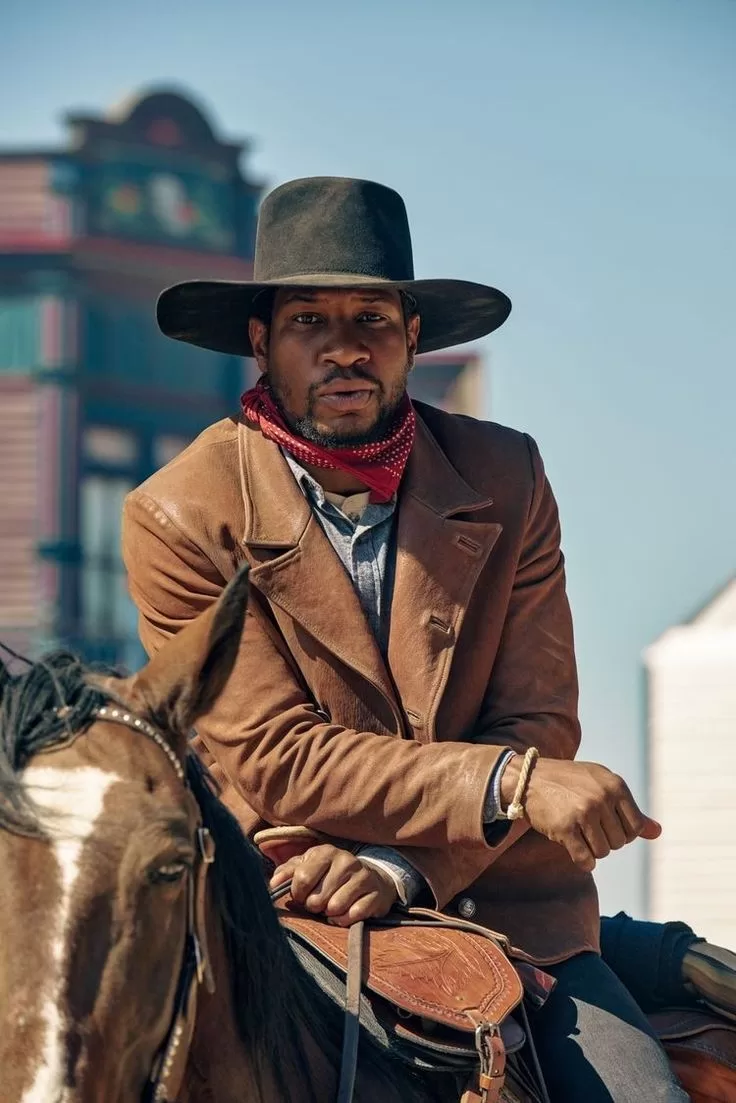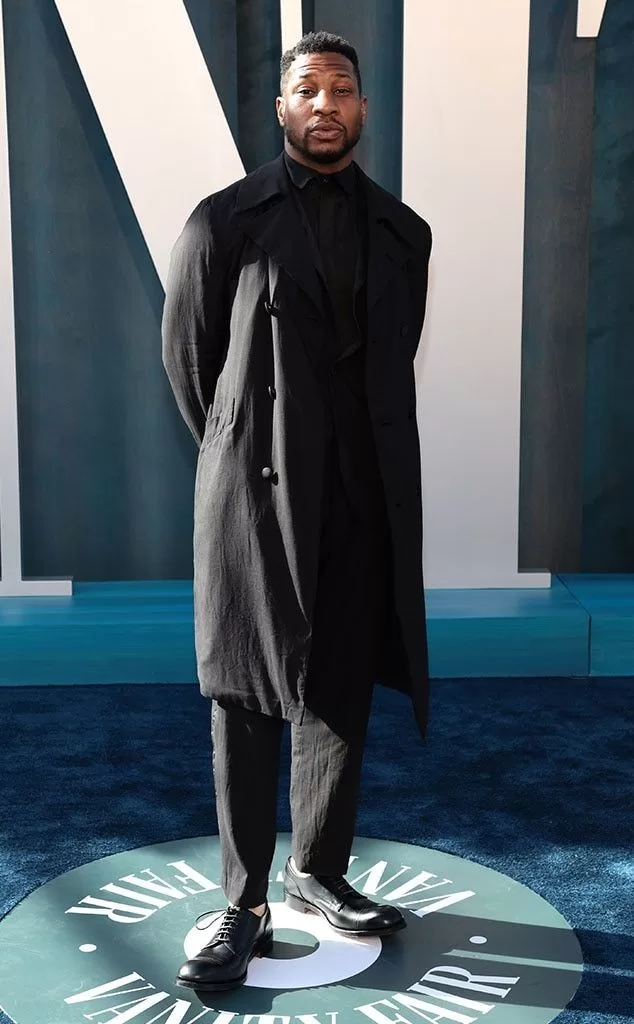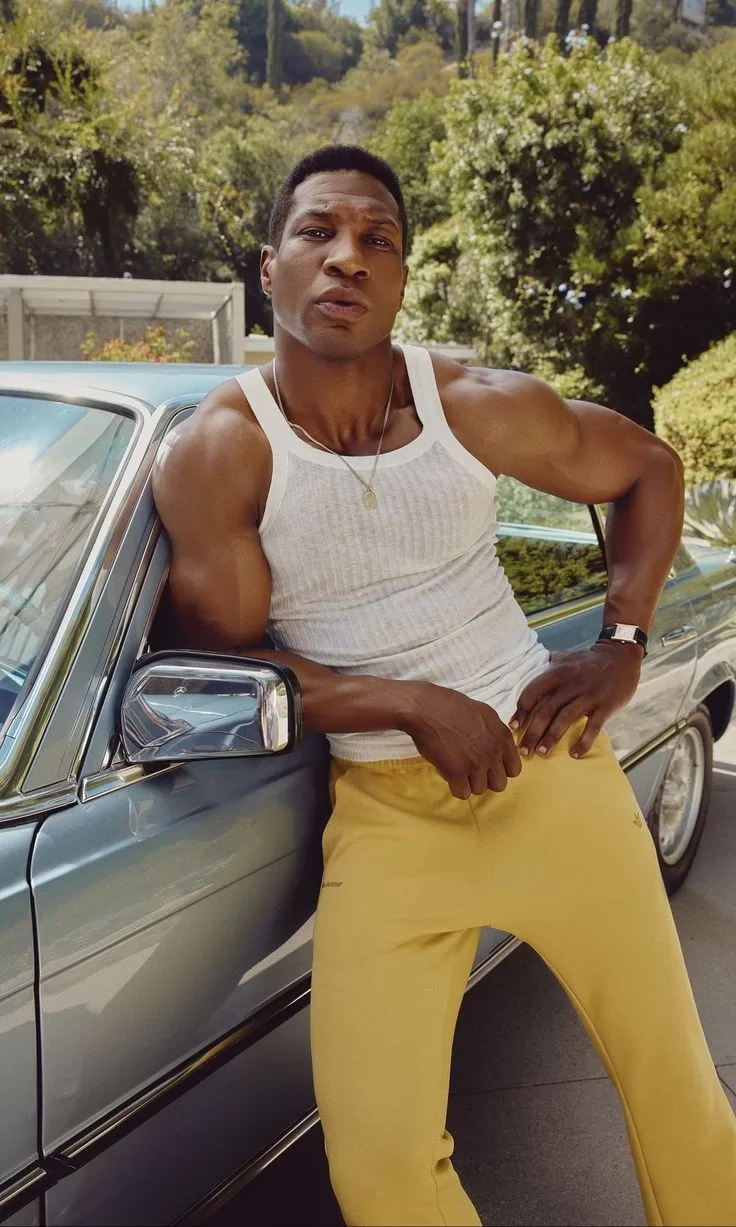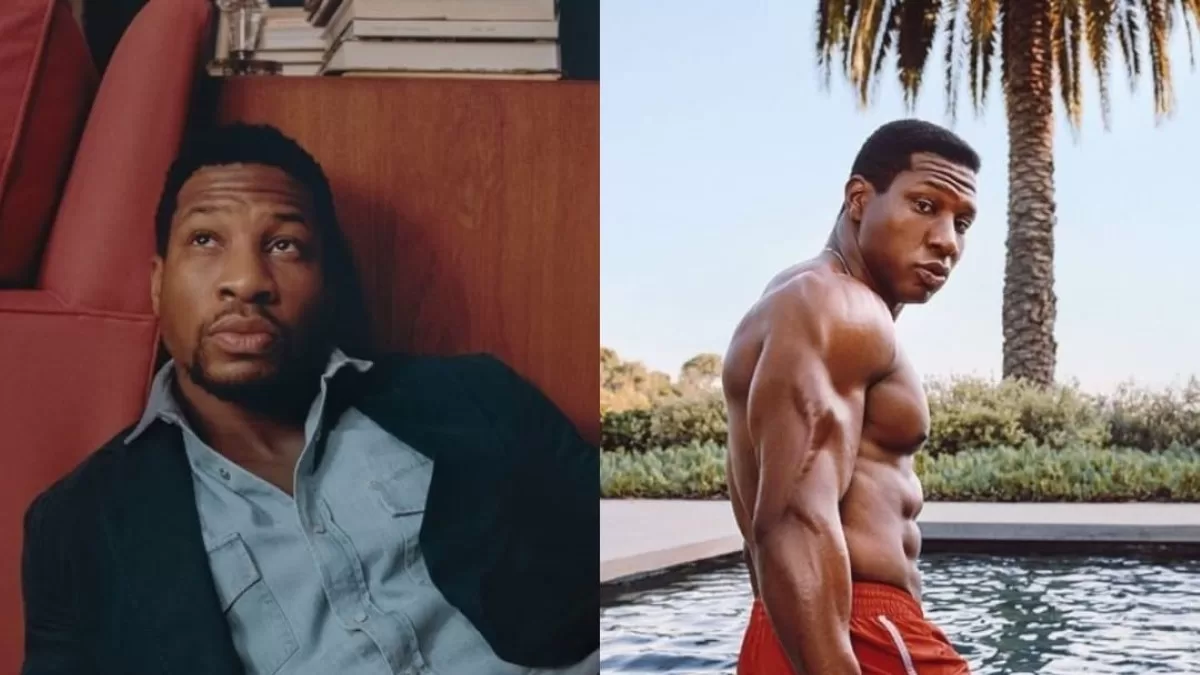Expressing disbelief, Jonathan Majors questioned the conviction’s validity. Stating, “How is it possible based on the evidence, both from the prosecution and our own?” In his initial interview post his assault and harassment conviction last month. The actor conveyed his shock and fear regarding the New York jury’s verdict. The interview, aired on Monday on ABC’s Good Morning America, marks Majors’ first public discussion of the situation.

Majors denies causing Jabbari’s injuries.
“I’m standing there, and the verdict comes down. I say, ‘How is that possible based on the evidence, based on the prosecution’s evidence, let alone our evidence? How is that possible?'” expressed Jonathan Majors. The Manhattan jury found the 34-year-old actor guilty of one misdemeanor assault charge and one harassment violation related to a March altercation with his then-girlfriend, Grace Jabbari. Facing a potential year in jail for the assault conviction. Majors’ sentencing is scheduled for February 6.
With the possibility of probation or alternative non-jail sentences. Despite being acquitted of a different assault charge and aggravated harassment. Marvel Studios and the Walt Disney Co. swiftly removed him from all upcoming projects.

The conflict between Majors and Jabbari initiated in the backseat of a chauffeured car and unfolded onto the streets of Manhattan. Jabbari, a 30-year-old British dancer, accused Majors of hitting her in the head, twisting her arm, and fracturing her middle finger.
In the GMA interview, Majors denied the allegations, stating, “That did not happen.” When questioned about how Jabbari sustained her injuries, Majors expressed uncertainty, saying, “I wish to God I knew. That would give clarity. That would give me some type of peace about it.”
During the trial, Majors’ legal team asserted that Jabbari entered a jealous rage after discovering a text message on his phone from another woman. They argued that Jabbari concocted a “fantasy” to undermine the actor. Contending that Majors was merely attempting to retrieve his phone and ensure a safe exit.
In the interview, Majors detailed his injuries, describing a scratch on his hand and one on his cheeks that bled overnight. Surveillance footage captures Majors running away with Jabbari in pursuit.
“If you watch those videos and you reverse that, and you saw a Black man chasing a young white girl down the street screaming and crying. That man is going to be shot and killed in the streets of New York City,” Majors remarked. Another surveillance video shows Majors lifting Jabbari into an SUV.

Majors explains his decision to share his perspective.
Majors explained that he decided to speak out because he “felt like it was time.” He emphasized the significance of taking responsibility, being courageous, and sharing his side of the story amid personal and career challenges in the midst of broader cultural shifts.
In a statement to ABC News, Brittany Henderson, an attorney for Jabbari. Jabbari said it isn’t surprising that Majors “continues to take no accountability for his actions” and the timing “demonstrates a clear lack of remorse for his actions.”



